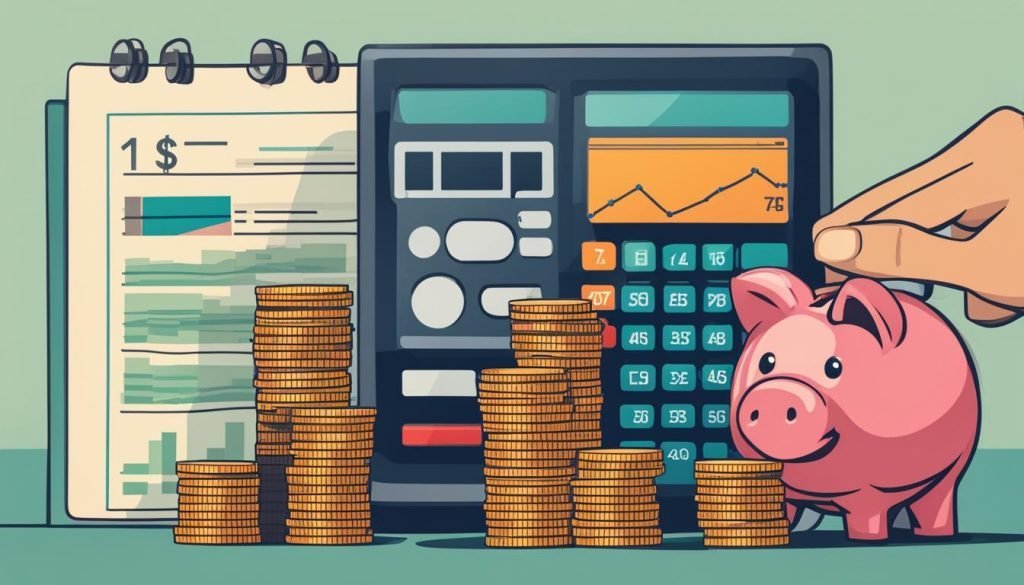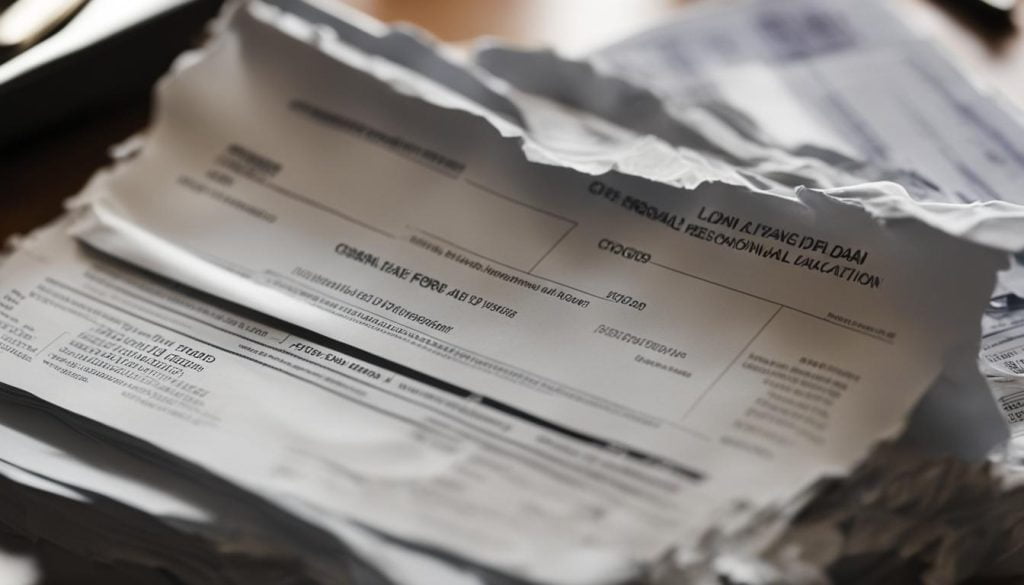In need of financial assistance? Applying for a personal loan in Singapore can provide the funds you require. Whether it’s for home renovations, education expenses, or managing debts, a personal loan can be a convenient solution. However, navigating the loan application process can be overwhelming if you’re unsure where to begin. That’s why we’ve created this step-by-step guide to help you through the process seamlessly.
Key Takeaways:
- Consider your loan requirement and compare different options to find the best fit for your needs.
- Check your eligibility criteria, including credit score, income, and employment pass, before proceeding with the application.
- Gather the necessary documents, such as identification, employment proof, bank statements, and income tax statements.
- Submit your loan application online or in-person, depending on the lender’s process.
- Once approved, receive the loan amount and manage your finances responsibly to avoid any difficulties in repayment.
5 Easy Steps for Taking a Personal Loan in Singapore
Obtaining a personal loan in Singapore can help you meet your financial needs quickly and easily. Whether you’re looking to consolidate debt, pay for a wedding, or finance a home renovation project, here are five simple steps to guide you through the process:
- Step 1: Determine your loan requirement and compare loan options
- Step 2: Check your eligibility for the loan
- Step 3: Complete the loan application process
- Step 4: Wait for approval
- Step 5: Receive the loan amount by signing the loan agreement
Step 1: Determine your loan requirement and compare loan options
Before applying for a personal loan in Singapore, it’s essential to assess your financial needs and determine the loan amount you require. Consider factors such as your existing debt obligations, monthly income, and the purpose of the loan. Once you have a clear understanding of your requirements, compare loan options from different lenders to find the best interest rates, repayment terms, and loan features that suit your needs.
Step 2: Check your eligibility for the loan
Each lender has specific eligibility criteria for personal loan applicants. Before proceeding with your loan application, review these requirements to ensure you meet the necessary criteria. Typical eligibility factors include your credit score, income level, employment stability, and citizenship status. For a higher chance of approval, it’s advisable to work on improving your credit score before applying for a personal loan.
Step 3: Complete the loan application process
Once you have chosen a lender and verified your eligibility, it’s time to complete the loan application process. Provide accurate personal, employment, and financial information as requested. You may also need to submit supporting documents such as identification proof, income statements, bank statements, and employment letters. Double-check all the details before submitting your application to minimize delays or rejections.
Step 4: Wait for approval
The approval process for personal loans can vary depending on the lender. Private money lenders typically offer faster approvals compared to traditional banks. While waiting for a decision, avoid applying for multiple loans simultaneously as it can negatively impact your credit score. Patience is key during this stage, and it’s essential to follow up with the lender if you have any questions or concerns about the status of your application.
Step 5: Receive the loan amount by signing the loan agreement
If your loan application is approved, the lender will provide you with a loan agreement detailing the terms and conditions. Take the time to review the agreement carefully and ensure you understand all the terms before signing. Once signed, the lender will disburse the loan amount to your designated bank account. Use the funds responsibly and according to your intended purpose.
| Loan Options | Loan Terms and Conditions | Eligibility Criteria | Loan Application Process |
|---|---|---|---|
| Compare loan options from different lenders to find the best fit for your needs | Review and understand the terms and conditions of the loan agreement | Check your eligibility based on factors such as income, employment stability, and credit score | Complete the loan application process with accurate information and supporting documents |
| Consider interest rates, repayment terms, and loan features | Ensure you can meet the repayment obligations outlined in the agreement | Work on improving your credit score to increase your chances of approval | Review and double-check all details before submitting your application |
| Seek advice from financial experts or loan consultants | Clarify any doubts or concerns with the lender before signing the agreement | Understand the lender’s specific eligibility criteria before applying | Follow up with the lender if you have any questions or concerns about your application |
Deciding the Amount and Type of Personal Loan You Need
When applying for a personal loan, it’s important to determine the amount you need and the type of loan that suits your requirements. This will ensure that you borrow an appropriate amount and choose the most suitable loan option. Here are some factors to consider:
Personal Loan Amount
The first step is to assess your financial needs and determine the amount of money you require. Consider factors such as the purpose of the loan, whether it’s for home renovations, medical expenses, or debt consolidation. Calculate the exact amount needed to cover your expenses, keeping in mind that borrowing more than necessary can lead to unnecessary interest payments.
Secured vs. Unsecured Loans
Next, consider whether you need a secured or unsecured personal loan. A secured loan requires collateral, such as a property or vehicle, to secure the loan. These loans often have lower interest rates but carry the risk of losing the collateral if you default on the loan. On the other hand, unsecured loans do not require collateral but generally have higher interest rates. Assess your financial situation and creditworthiness to determine which option is more suitable for you.
Medical Loans and Debt Consolidation Loans
If you require a personal loan for medical expenses, you may want to explore medical loans specifically designed for healthcare-related costs. These loans often offer flexible repayment terms and lower interest rates. Alternatively, if you have multiple debts and want to consolidate them into a single monthly payment, consider debt consolidation loans. These loans can simplify your finances and potentially lower your overall interest costs.
By carefully considering the amount and type of personal loan you need, you can make an informed decision that aligns with your financial goals and circumstances.
| Loan Type | Interest Rate | Collateral Required | Purpose |
|---|---|---|---|
| Secured Personal Loan | Lower | Yes | Various |
| Unsecured Personal Loan | Higher | No | Various |
| Medical Loan | Lower | No | Medical Expenses |
| Debt Consolidation Loan | Varies | No | Consolidate Debts |
Choosing the Right Lender and Checking Your Credit Score
When it comes to applying for a personal loan, selecting the right lender is crucial. You have two main options: licensed moneylenders and financial institutions. Licensed moneylenders are non-bank entities regulated by the Ministry of Law, while financial institutions include banks and other traditional lenders. Each choice has its pros and cons, so it’s essential to understand them before making your decision.
If you choose a licensed moneylender, you may have more flexibility in terms of eligibility criteria and faster loan approval. However, it’s important to note that licensed moneylenders typically charge higher interest rates compared to financial institutions. On the other hand, financial institutions may offer lower interest rates, but they often have stricter eligibility requirements and a longer approval process. Assess your needs and preferences to determine which type of lender is right for you.
Another critical factor in the loan application process is your credit score. Your credit score is a numerical representation of your creditworthiness and plays a significant role in loan approval decisions. Financial institutions, in particular, place a heavy emphasis on credit scores when reviewing loan applications. A higher credit score increases your chances of loan approval, while a lower credit score may lead to rejections or higher interest rates.
Before applying for a personal loan, it’s wise to check your credit score to understand where you stand. You can obtain a free credit report from the Credit Bureau Singapore website. If your credit score is below 600, it may be more challenging to secure a loan from a financial institution. In such cases, you may want to explore alternative lenders or consider improving your credit score before applying.
Reviewing the Eligibility Requirements and Gathering Documents
Before applying for a personal loan, it is crucial to review the eligibility requirements set by the lender. Meeting these criteria increases your chances of loan approval. Here are some key factors to consider:
Evaluating Loan Eligibility
Loan eligibility is determined by various factors, including credit rating, annual income, credit history, and debt-to-income ratio. Lenders assess your creditworthiness based on these factors to determine if you qualify for a personal loan.
Your credit rating plays a significant role in the loan application process. It is a reflection of your credit history and financial responsibility. Lenders typically prefer borrowers with a good credit score, as it demonstrates a higher likelihood of loan repayment.
In addition to credit rating, lenders also evaluate your annual income to assess your ability to repay the loan. A stable income stream gives lenders confidence in your loan repayment capacity. It is advisable to provide all relevant income documents, such as salary slips or tax statements, to support your application.
Gathering Required Documents
When applying for a personal loan, you will need to gather specific documents to complete the application process. These documents may include:
- Identification documents, such as your NRIC or passport
- Proof of employment, such as employment contracts or appointment letters
- Bank statements for the past few months to verify your financial standing
- Income tax statements to validate your income details
Having these documents ready will speed up the loan application process and ensure a smoother experience. It is essential to check with the lender about any additional documents required to avoid delays.
Table: Personal Loan Eligibility Checklist
| Criteria | Requirements |
|---|---|
| Credit Rating | A good credit score is preferable |
| Annual Income | Sufficient income to support loan repayment |
| Credit History | No significant defaults or delinquencies |
| Debt-to-Income Ratio | A manageable ratio of debt to income |
| Required Documents | Identification, employment proof, bank statements, income tax statements |
Meeting the eligibility requirements and having the necessary documents ready will increase your chances of a successful personal loan application. It is important to take the time to understand the lender’s criteria and gather all required documentation to ensure a smooth loan approval process.
Submitting Your Loan Application and Waiting for Approval
Once you’ve gathered all the necessary documents, it’s time to submit your loan application. Depending on the lender, you may have the option to apply online or in-person. Online loan applications offer convenience and can be completed from the comfort of your own home. Be sure to carefully fill in all the required information, providing accurate personal, employment, and income details.
The loan approval process varies between licensed moneylenders and banks. Licensed moneylenders typically have a faster turnaround time and may approve your loan application within a day or two. On the other hand, banks may take longer to process applications due to their strict evaluation criteria.
While waiting for approval, it’s important to be patient and avoid applying for multiple loans simultaneously. Each loan application you submit generates an inquiry on your credit report, which could negatively impact your credit score. It’s best to give the lender sufficient time to review and process your application before considering other options.
Gathered Information Summary
| Loan Application Process | Online Loan Application | Loan Approval Time |
|---|---|---|
| Submit loan application with accurate information | Apply conveniently online or in-person | Varies between licensed moneylenders and banks |
| Be patient and avoid multiple loan applications | ||
Receiving the Loan Amount and Managing Your Finances
Once your personal loan application is approved, you will receive the loan amount as agreed upon in the loan agreement. This loan disbursement process ensures that you have the necessary funds to fulfill your financial needs. Whether you are planning to renovate your home, pursue further education, or cover unexpected expenses, managing your loan funds effectively is crucial.
By creating a clear plan for how you will use the loan amount, you can ensure that the funds are allocated appropriately. Determine your priorities and allocate the necessary funds to each aspect of your financial plan. This will help you stay on track and avoid unnecessary spending.
Additionally, it is important to consider the repayment terms and schedule outlined in your loan agreement. Make sure to factor in the monthly installment into your budget to ensure timely repayment. Setting up automatic payments or reminders can help you stay organized and avoid any late payments or penalties.
In summary, receiving the loan amount is an important step in the personal loan process. By managing your loan funds effectively and adhering to the repayment schedule, you can fulfill your financial goals and maintain a healthy financial outlook.
| Managing Loan Funds Tips |
|---|
| 1. Create a clear plan for using the loan amount. |
| 2. Allocate funds according to your priorities and financial goals. |
| 3. Consider the repayment terms and schedule in your loan agreement. |
| 4. Factor in the monthly installment into your budget. |
| 5. Set up automatic payments or reminders to avoid late payments. |

Repaying Your Personal Loan and Maintaining Good Credit
One of the most crucial aspects of taking a personal loan is ensuring timely repayment. Repaying your loan on time not only helps you avoid penalties but also plays a significant role in maintaining a good credit score. Your credit score impacts your ability to secure future loans and financial opportunities. It is important to stay organized and budget your finances to ensure you can meet your repayment obligations.
The loan repayment period will depend on the terms and conditions set by your lender. It is essential to be familiar with these terms and create a repayment plan that works for you. Remember to factor in your monthly income and other financial commitments to determine a suitable repayment amount. Making consistent and on-time payments will demonstrate your financial responsibility and improve your creditworthiness.
Failure to repay your personal loan can have a negative impact on your credit score. Late or missed payments will be reported to credit bureaus, potentially lowering your credit rating. This, in turn, can make it more challenging to secure loans or credit in the future. If you experience difficulties in repaying your loan, it is essential to communicate with your lender. Discussing your situation openly can help explore alternative solutions, such as restructuring your repayment plan or adjusting the loan terms to better suit your financial circumstances.
| Loan Repayment Tips | Credit Score Impact |
|---|---|
| Set up automatic payments to ensure you never miss a due date. | Consistent, on-time payments can positively impact your credit score, improving your creditworthiness. |
| Create a monthly budget to allocate funds towards loan repayment. | Timely loan repayment helps maintain a good credit score, increasing your chances of securing future credit. |
| Consider making extra payments towards your loan whenever possible. | Reducing your outstanding loan balance shows responsible financial behavior, boosting your credit score. |
| Avoid taking on additional debt while repaying your personal loan. | Increasing your debt-to-income ratio can negatively impact your credit score, making it harder to access future credit. |
Remember, repaying your personal loan on time not only helps you fulfill your financial obligations but also demonstrates your ability to manage credit responsibly. By maintaining a good credit score, you can enjoy better borrowing opportunities and financial stability in the long run.
Conclusion
Applying for a personal loan in Singapore is a straightforward process that can help you achieve your financial goals. By following the step-by-step guide outlined in this article, you can navigate through the loan application and approval process with ease.
Start by determining your loan requirements and comparing different loan options. Then, check your eligibility for the loan and gather the necessary documents. Once you’ve completed the application process, submit your application and patiently wait for approval.
Remember, timely repayment of your personal loan is essential to maintaining a good credit score and avoiding any penalties. If you encounter any difficulties, don’t hesitate to inform your lender and explore alternative solutions.
For a hassle-free personal loan application experience, consider reaching out to Winz Credit. Whether you prefer a free consultation or pre-approval, you can contact them at 6289 6616 or apply online. Take the first step towards achieving your financial goals today!
FAQ
What is a personal loan?
A personal loan is an unsecured loan based on the borrower’s integrity and financial ability. It typically comes with higher interest rates compared to secured loans like mortgage loans.
What happens if I default on a personal loan?
Defaulting on a personal loan can harm your credit score and make it difficult for you to obtain future loans or credit.
What are the typical features of personal loans in Singapore?
Personal loans in Singapore usually have a fixed interest rate and repayment period. The repayment amount includes the principal loan amount and the interest.
How do I apply for a personal loan in Singapore?
To apply for a personal loan in Singapore, follow these steps:
– Determine your loan requirement and compare loan options.
– Check your eligibility for the loan, including credit score, income, and employment pass.
– Complete the application process with the required documents.
– Wait for approval, which may take longer for banks compared to private money lenders.
– Receive the loan amount by signing the loan agreement.
How do I decide the amount and type of personal loan I need?
Before applying for a personal loan, decide the amount you need based on your financial requirements. Consider the type of personal loan that suits your needs, such as secured, unsecured, medical, or debt consolidation loans.
How do I choose the right lender for my personal loan?
Choose the right lender for your personal loan, whether it’s a licensed moneylender or a financial institution. Your credit score plays a crucial role in loan approval, with higher credit scores increasing your chances of approval.
What are the eligibility requirements for a personal loan?
Review the eligibility requirements of the lender before applying for a personal loan. Ensure you meet criteria such as credit rating, annual income, credit history, and debt-to-income ratio. Make a checklist of the required documents, including identification, employment proof, bank statements, and income tax statements.
How long does it take to get a personal loan approved?
Licensed moneylenders may approve your loan application within a day or two, while banks may take longer to approve personal loan applications.
How do I manage the loan amount once it is disbursed?
Once your loan application is approved, sign the loan agreement and receive the loan amount. Use the funds as planned, whether for home improvement, education, or other expenses. Create a repayment plan and ensure timely repayments to avoid any financial difficulties.
What should I do if I encounter difficulties in repaying my personal loan?
If you encounter difficulties in repaying your personal loan, inform the lender to explore alternative solutions and avoid penalties. Communication is key in managing your loan repayments.






